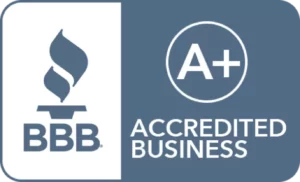Precious Metals Investing
In general, most Americans have an enormous amount of financial exposure to the financial markets. Whether it is through retirement investments such as IRAs or 401(k) plans, or personal savings, many of us have most of our savings connected in some way to the stock market. In fact, over 90 percent of retirement assets are invested in the financial markets.
With what is believed to be approximately $25 trillion in retirement assets as of 2014, you can see the scope of that exposure. Investing in nontraditional assets, such as real estate and precious metals, offers a form of investment diversification from the equity markets.
In general, the more diversified your portfolio, the greater the chance that your assets will offer lower correlation, meaning they are less likely to move in the same direction. However, diversification does not assure profit or protect against loss. The use of nontraditional asset classes can help protect your portfolio when the market is down and help protect you from losing more than the market.
Invest in Something You Understand
Many Americans became frustrated with the equity markets after the 2008 financial crisis. Thankfully, we have seen the financial markets rebound since then and have even seem some years of over 20 percent growth in the equity markets. Nevertheless, many Americans are still somewhat shell-shocked from the market swings and not 100 percent sure what exactly goes on in Wall Street and how it all works.
Precious metals in comparison, is often a more comfortable investment for many Americans. Everyone has heard someone talk about the importance of owning gold as a hedge against inflation or a faltering economy. While inflation was slightly down in April 2022, economists still estimate that inflation is at 8.3%. The rise of inflation and the increased cost of living has led many individuals to explore precious metals as an alternative investment in their retirement funds.
Inflation Protection
Rising food and energy prices, coupled with high federal debt levels and low interest rates, have recently fueled new inflationary fears. As a result, some investors may be looking for ways to protect their portfolios from the ravages of inflation. It is a matter of guesswork to estimate whether these inflation risks are real, but for some retirement investors, protecting retirement assets from inflation is a big concern. Inflation can have a nasty impact on a retirement portfolio because it means a dollar today may not be worth a dollar tomorrow. Inflation also increases the cost of things that are necessary for humans to live and enjoy life, such as bread, gas, shelter, clothing, and medical services.
This decreases the value of money so that goods and services cost more.
For example, if someone had a retirement account worth $250,000 at a time of high inflation, that $250,000 will be worth significantly less or have significantly less buying power. This can mean the difference between retiring and working the rest of your life. Buying hard assets is seen as one way of protecting your assets against inflation. Many investors have long recognized that investing in commercial real estate can provide a natural protection against inflation, as rents tend to increase when prices do, acting as a hedge against inflation.
Hard Assets
Many nontraditional assets, such as real estate and precious metals, are tangible hard assets that you can see and touch. With real estate, for example, you can drive by with your family, point out the window, and say, “I own that.” For some, that’s important psychologically, especially when there are concerns about financial instability, inflation, and/or political or global upheaval.
What Type of Precious Metals and Coins are IRS Approved Investments?
Internal Revenue Code Section 408(m) lists the type of precious metals and coins that are permitted investments using IRA funds:
- one, one-half, one-quarter or one-tenth ounce U.S. gold coins (American Gold Eagle coins are the only gold coins specifically approved for IRAs). Other gold coins, to be eligible as IRA investments, must be at least .995 fine (99.5% pure) and be legal tender coins.
- one ounce silver coins minted by the Treasury Department.
- any coin issued under the laws of any state;
- a platinum coin described in 31 USCS 5112(k); and
- gold, silver, platinum or palladium bullion (other than bullion that is made into a coin) of a certain fineness that is in the physical possession of a Trustee that meets the requirements for IRA Trustees under Code Sec. 408(a).
The Technical and Miscellaneous Revenue Act of 1998 allowed IRA owners to invest their IRA assets in certain platinum coins as well as certain gold, silver, platinum, or palladium bullion provided the precious metals are held in the physical possession of the financial organization or depository. With respect to state minted coins, the coins must be held in the possession of a third-party other than the IRA holder. The Technical and Miscellaneous Revenue Act of 1998 does not state that the third-party holding the state minted coins must be a bank, but the holder must not be the IRA holder. Regarding American Eagle coins, there does not seem to be a “physical possession” requirement as precious metals or a restriction on possession by the IRA holder as in the case of state minted coins.
Section 408(m) also states that bullion (IRS approved gold, silver, or palladium) must be held in the physical possession of a Trustee described under subsection (a). The “physical possession” requirement seemingly only applies to bullion and not approved coins.
A Trustee is defined in Internal Revenue Code Section 408(a) as a bank (as defined in subsection (n)) or such other person who demonstrates to the satisfaction of the Secretary that the manner in which such other person will administer the Trust will be consistent with the requirements of this section.
Internal Revenue Code Section 408(n) defines a bank as any bank (as defined in section 581) or an insured credit union (within the meaning of paragraph (6) or (7) of section 101 of the Federal Credit Union Act).
Section 581 defines a bank as a bank or Trust company incorporated and doing business under the laws of the United States (including laws relating to the District of Columbia) or of any State, a substantial part of the business of which consists of receiving deposits and making loans and discounts, or of exercising fiduciary powers similar to those permitted to national banks under authority of the Comptroller of the Currency, and which is subject by law to supervision and examination by State, Territorial, or Federal authority having supervision over banking institutions. Such term also means a domestic building and loan association. The Code seems to suggest that metals cannot be held in a foreign bank account since it would not satisfy the definition of a bank. The question then becomes what does “physical possession” mean?
IRC Section 408(m) clearly states that gold, silver, or palladium bullion must be held in the physical possession of a U.S. Trustee, otherwise known as a U.S. bank or financial institution.
The IRA Financial Trust has relationships with a number of leading depositories in the country allowing its clients the ability to purchase and hold IRS approved precious metals and coins in a safe and secure environment.
The Self-Directed retirement specialists at the IRA Financial Trust will help you with the process of using your Self-Directed IRA or Checkbook Control IRA to purchase IRS approved precious metals and coins.
Before using a Self-Directed IRA to purchase IRS approved precious metals or coins, one should consult with their financial or tax advisor to make sure the investment is suitable and right for you.
Get in Touch
If you still have questions about investing in precious metals with a self-directed IRA, contact IRA Financial Trust directly at 800-472-1043. Our specialists will answer any questions you may have about precious metal investments. Get in touch today.











